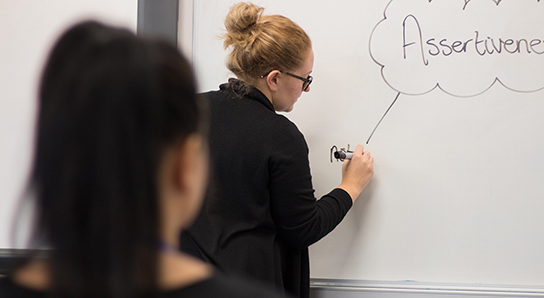Reducing reoffending

Rehabilitation and reducing reoffending are at the core of everything we do across Sodexo’s prisons. Our two-year 'Reducing Reoffending' strategy focuses on clear, tangible outcomes that will be visible to prisoners, their families, and our staff. Everyone has a role in helping us change lives for the better.
The strategy is built around three key principles:
- People
We focus on creating safe environments where staff can work effectively and prisoners can engage in meaningful rehabilitation. - Partnerships
Rehabilitation requires collaboration. We work closely with Probation services, HMPPS, throughcare providers in Scotland, and education, skills, and work partners in England to support prisoners' reintegration. - Progression
We prioritize involving families and significant others in the rehabilitation process and offer tailored support for specific groups like care leavers, mothers in custody, and veterans.
Reducing Reoffending: The Seven Pathways
Reducing reoffending means addressing key, often interconnected areas of an individual’s life. Across our Sodexo prisons, we focus on seven key pathways to support rehabilitation and safe reintegration into the community:
- Accommodation:
Safe, secure, stable housing is essential for community reintegration and reducing and individuals’ likelihood of reoffending. We work with Probation and Local Authorities to support referrals into housing pathways. - Attitudes, Thinking & Behaviour:
We promote pro-social behaviour through staff modelling and a range of accredited and non-accredited interventions. - Children & Family:
Family and significant others are crucial. We embed family services and specialised family interventions through targeted interventions and activities. - Drugs & Alcohol:
We work with healthcare partners to address substance misuse through specialist interventions. - Education, Training & Employment:
We offer meaningful activity, education and training varied learning and work opportunities, plus initiatives like Starting Fresh to support employment after release. - Finance, Benefit & Debt:
We provide financial guidance and support through dedicated advisors and Job Centre partnerships to reduce financial stress. - Health:
We ensure prisoners can access vital healthcare through strong partnerships with local health providers.
Purposeful Activity
At HMP Addiewell we have designed our Purposeful Activity offer to create a learning environment that supports our prisoner's personal growth in response to their identified needs. Our aim is to provide our prisoners with the skills, knowledge and qualifications to enable them to reintegrate into their community successfully upon liberation. The hope is that all of the prisoners currently residing within Addiewell will re-enter society, therefore we strive to prepare them for a positive destination whether that be full time employment or further education which will significantly reduce their chances of re-offending.
Addiewell offers 40 hours of purposeful activity per prisoner, per week and is divided into three main areas:
- Learning and Skills
- Employment
- Programmed Interventions
We also adopt an effective Peer Support Model, where prisoners are identified for support roles throughout the prison. They act as positive role models for fellow offenders and assist staff in the delivery of classes, programmes, sports activities, induction and offender support services.
Case Management within Addiewell means the approach to the assessment, planning, implementation, review and coordination of access to a range of services for any prisoner. Case management provides the roadmap for transition back to the community and requires strong coordination and collaboration among key stakeholders in both the prison and the community.
Case management will place the prisoner at the centre of a whole system approach and will focus upon what happens after release in addition to what happens in prison. The case management process will be a conduit for all aspects of the prisoners journey from admission to their return to the community, linking in with healthcare, education, work parties and offending behaviour programmes.
Healthcare, like with all prisons in Scotland, is provided by the NHS.

